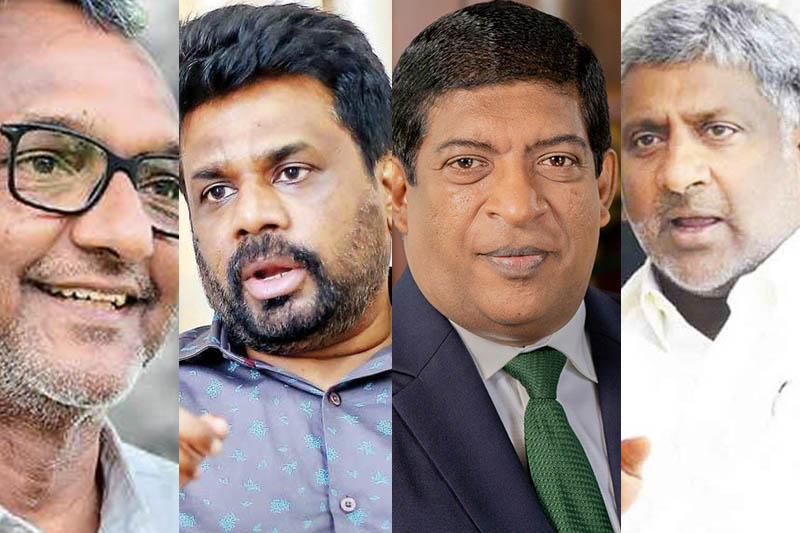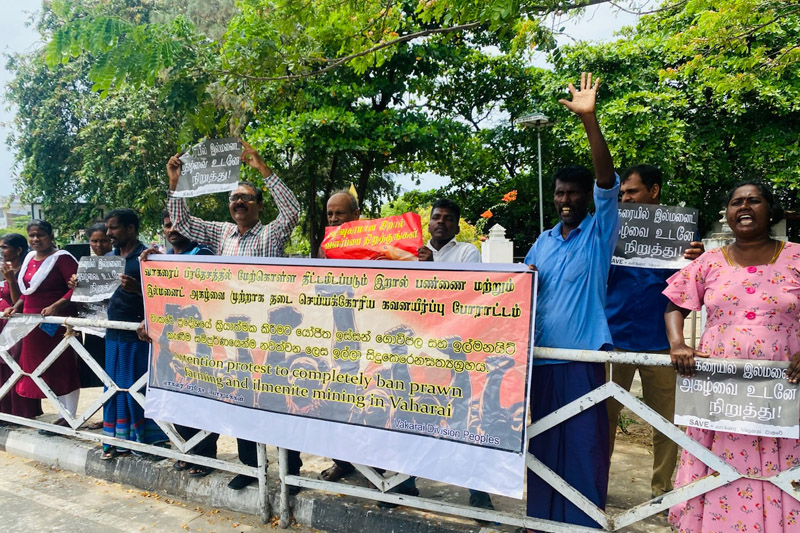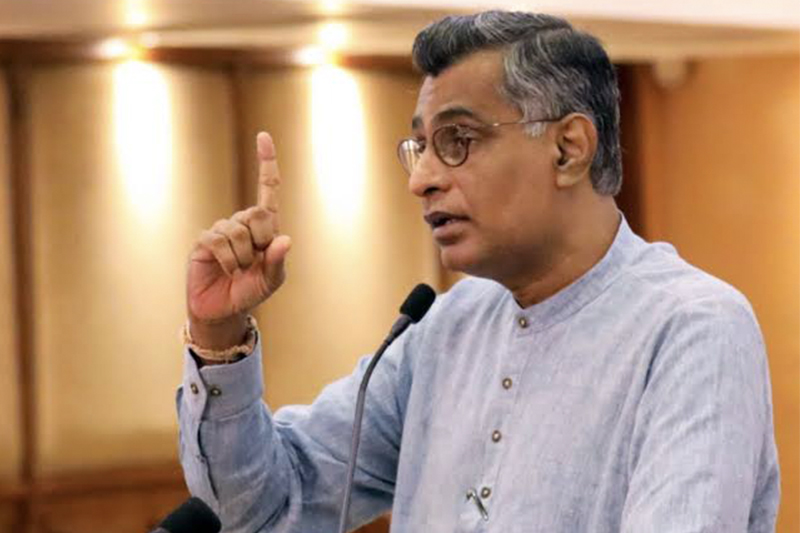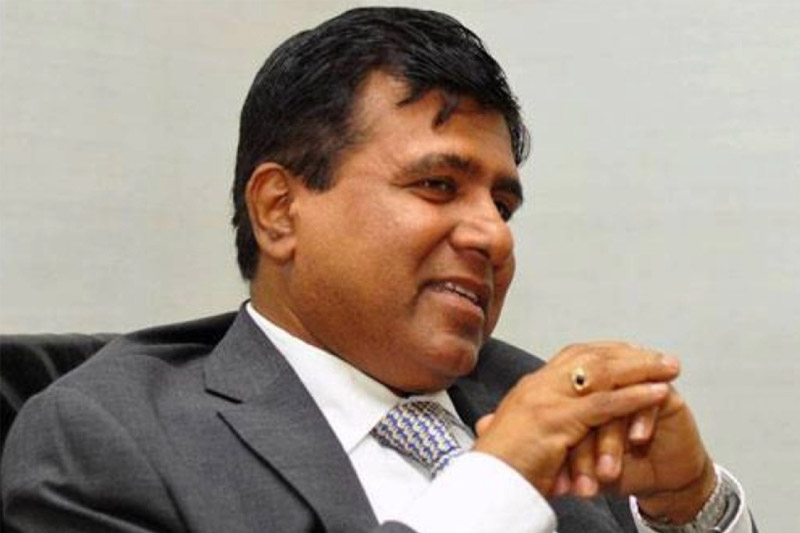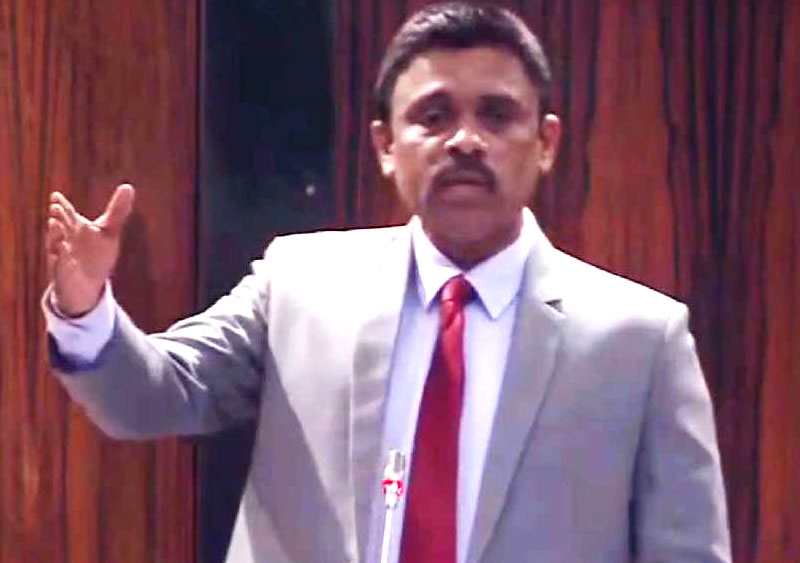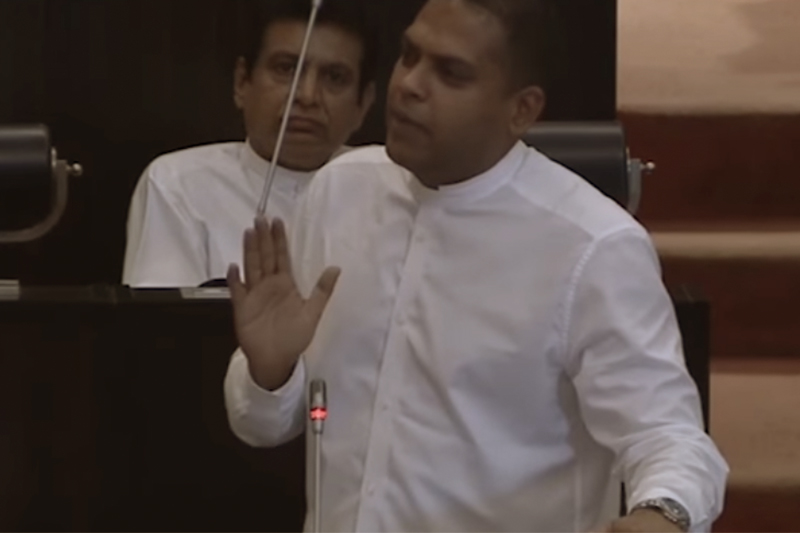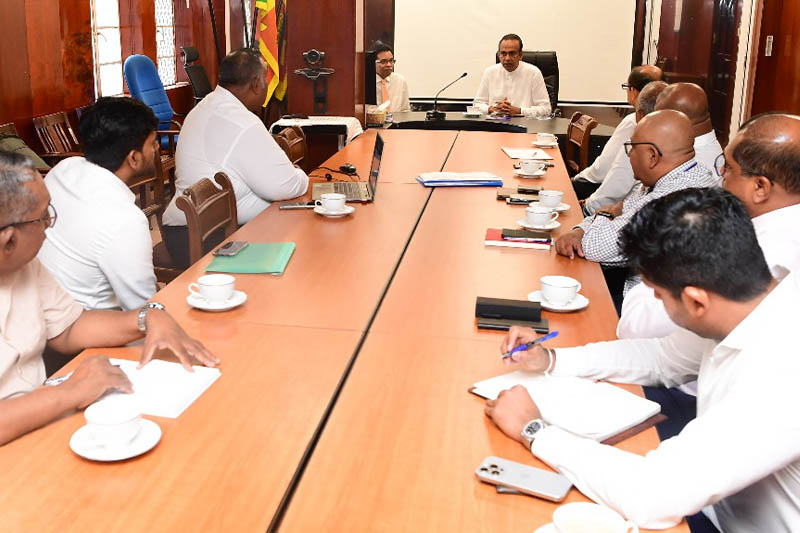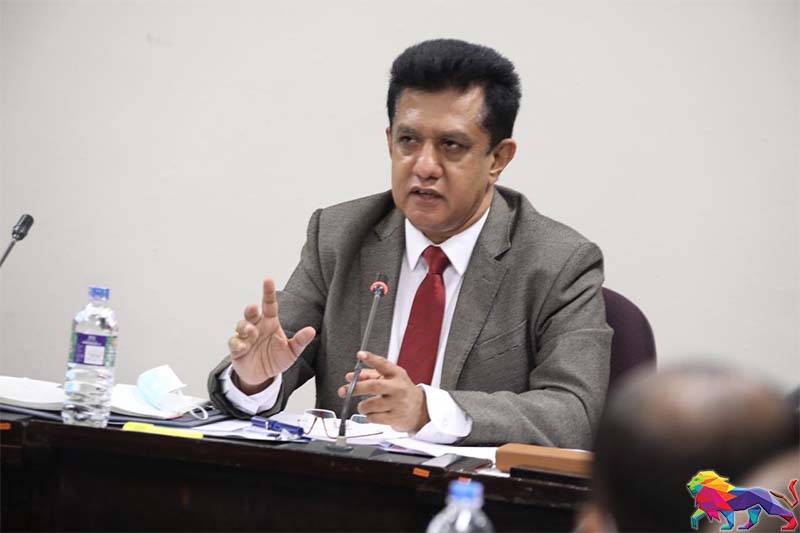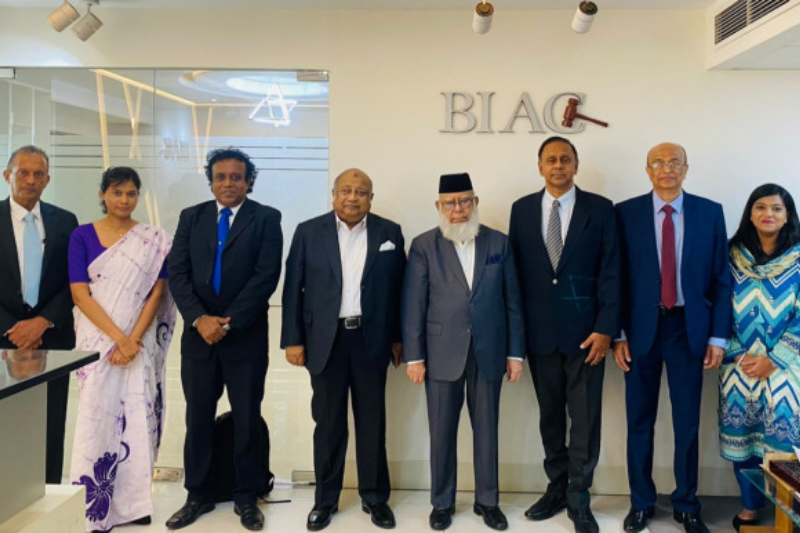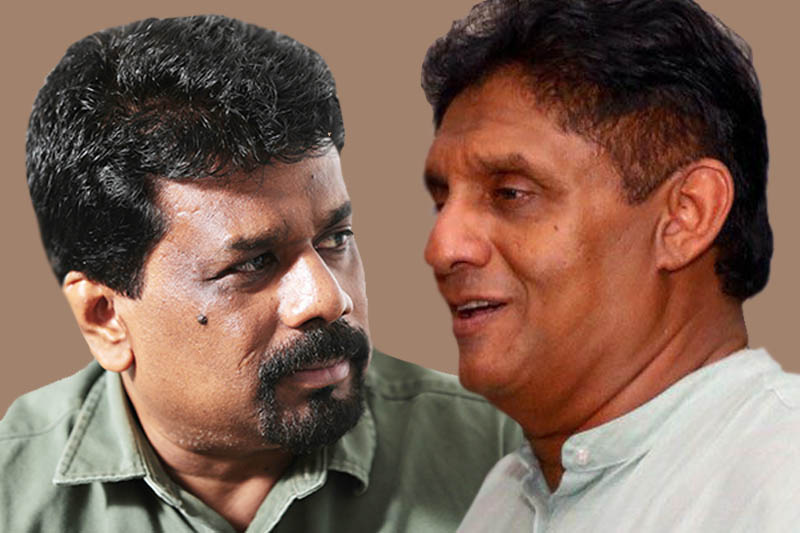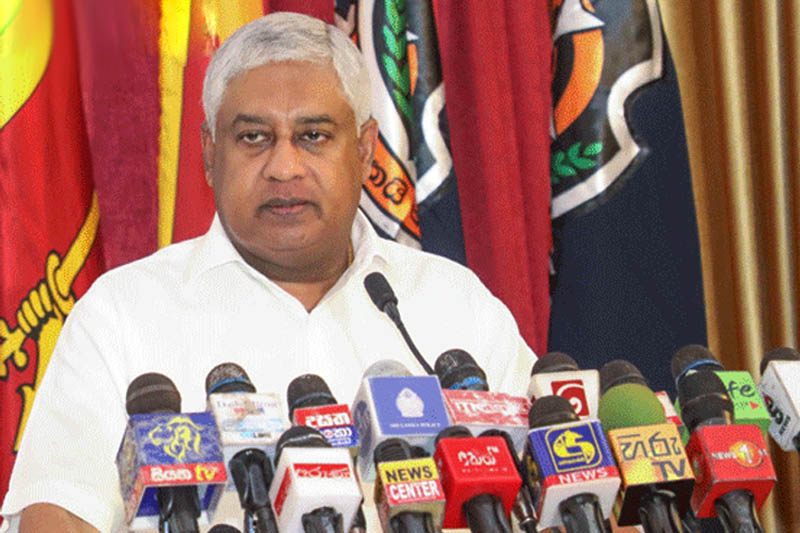Sri Lanka stands at a crossroads; its political and social fabric woven with threads of uncertainty and resilience.
Last week provided a glimpse of the country’s chaos, despite the cautious optimism of many in the corporate sector, primarily due to the increased number of tourist arrivals, a plethora of possible Foreign Direct Investments (FDIs), and multiple reforms the Ranil Wickremesinghe-led Government is pursuing.
Most of the city hotels are above 80% occupancy for the season and the tourism sector is upbeat about the revival of tourism in the country. The question for tourism actors is the off-season occupancy. Most businesses in the leisure sector have suffered heavily since the 21 April 2019 Easter attacks.
The debt moratorium is over now and has compelled companies to repay loans. The financial cost hit the roof and, thankfully, is now settling down. The silver lining is that lending rates have reduced significantly compared to the 2022 period.
At least a couple of million people directly and indirectly depend on tourism, once a $ 4 billion economy. With the surge in tourist arrivals, the capacity of the Katunayake airport has been questioned by critics. Long queues at the counters are a frequent sight to many.
The negative stories are being amplified in digital media by Sri Lankans. However, what tourists feel about Sri Lanka as one of the best destinations is unknown, as they have different social media circles and digital conversations cannot be easily mapped.
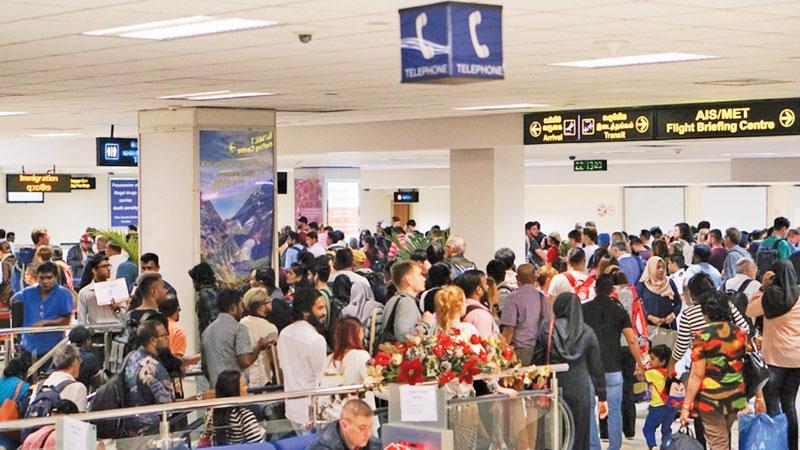
On multiple occasions when I passed the immigration counters for departure, the QR code did not work and I had to fill out the paperwork for the disembarkation card. The paper card said arrivals, which has been noted by many Sri Lankans before, including a powerful Opposition MP. If this has been corrected, I humbly apologise.
This is the country of brilliant tech people, the tech game-changers in the world, and people who developed an excellent QR system to solve a pressing issue of oil distribution. Whilst we boast about tourism development, we often conveniently neglect the ‘moment of truth’ of consumers. When people cannot solve simple issues, you cannot expect them to solve more significant problems.
Attention to detail is a must and the entry and exit point to the country needs to wow outsiders especially, not forgetting the insiders. Everyone wants to be strategists, but not many want to be implementers. Criticising from afar is easier when you don’t have to be the driver.
Sri Lanka is the best island of its size, as said by the great explorer Marco Polo. The 65,000 sq. km island is truly blessed. It’s an island of intrigue. Sri Lanka can come out of its economic crisis by simply doing tourism right, but are we doing it right? There is a debate about Sri Lanka’s requirement to attract high spenders to the country. The quality vs. quantity debate has been going on for many years now. It’s never too late to act.
Whilst the country is just coming out of the woods of the chaotic year of 2022, its politics are shaping an epic political case study. The Presidential Elections are due before 17 October. All influential politicians are in hyper mode and campaigns have started already. Fake news is rampant. What is said in the morning gets squashed by the evening.
While politicians are running to capture power, the citizenry is still in dire straits. This is the reason people yearn for a change. Alarmingly, the youth are shying away from the political discourse. There are approximately six million voters under 40 years of age in the country. They are in the digital sphere, looking for hope amidst all the chaos.
Imthiaz Bakeer Markar
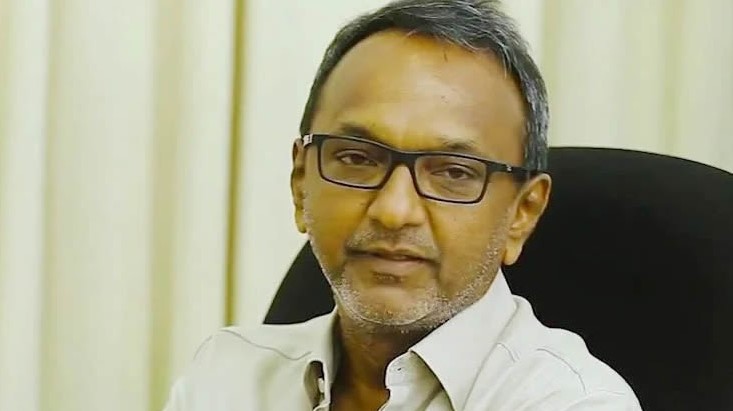
At the centre of the evolving narrative is Imthiaz Bakeer Markar, a figure whose life story mirrors the challenging journey of his homeland. Launching his autobiography at Ananda College, his alma mater, on the 5 March, Markar offers a memoir and a reflection on a nation’s quest for harmony amidst political chaos.
His journey from a rebellious youth in socialist youth politics to mainstream politics provides a great read. A loyal servant of the United National Party (UNP), he first entered Parliament on 14 July 1988 to fill the vacant seat of the Beruwala electorate through a secret ballot of the electorate’s political activists. When he took oath, his father, a renowned political leader, was in the speaker’s seat. In 1989, he polled 35,433 preferential votes, which increased to 89,000 in the 2001 Parliamentary Election, with steady increases in the 1994 and 2000 elections. In Beruwala, he polled over 80% of the UNP votes every time he contested until 2001.
Following a pause in his politics, he entered mainstream politics again and broke away from the UNP to form the Samagi Jana Balawegaya (SJB) under the leadership of Sajith Premadasa. Bakeer Markar’s autobiography has been coming for some time and he is launching it just before a crucial Presidential Election.
Markar, a humble Muslim and a proud Sri Lankan, never played divisive or race-based politics. He was the unity man in a divided country. He has never been marked by a public scandal during his 54 years in politics, indeed an eye-opener for current-day politicians. Markar, arguably one of the best all-round communicators in the country, still has a pivotal role to play in shaping the public discourse of the country.
In addition, his five sons – Asaf, Azam, Fadhil, Adhil, and Insaf – never behaved as entitled sons of a famous father. That speaks volumes of the three generations of Bakeer Markars. In 2016, the 26-year-old Adhil passed away in an untimely fashion, breaking the hearts of family and friends. More often, Adhil was seen as the third-generation politician of the Markar family and there is serious concern that the political legacy of the Markars will stop with Imthiaz.
Just like any public leader, Bakeer Markar has also faced a fair share of criticism, especially from the UNP’s inner circle. There were many rumours about his falling out with his former Leader President Wickremesinghe, but both parties remained silent on the matter in public.
Ranil’s presidential campaign
Amidst swirling rumours and strategic ambiguity, the political arena is further complicated by the announcement that President Wickremesinghe intends to run as an independent candidate in the upcoming Presidential Election. On 23 December 2023, I wrote in this column on the likelihood of President Wickremesinghe becoming an independent candidate.
Perhaps it is the most prudent strategy for President Wickremesinghe to adopt, given the deep divisions in the political landscape of the country. Even before the 17 August 2015 Parliamentary Election, Wickremesinghe was always rooted in the concept of a national government and does not seem to be moving away from this strategy yet.
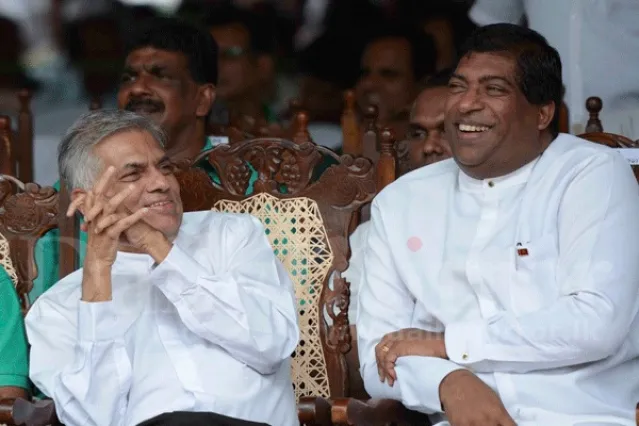
The independent candidacy of Wickremesinghe, confirmed by UNP stalwart Ravi Karunanayake, signals a tactical shift in the political game, underscoring the unpredictable nature of political alliances and ambitions. Karunanayake’s re-emergence as a key figure in Wickremesinghe’s inner circle epitomises the intricate dance of power and persuasion that defines Sri Lankan politics. As the presidential campaign quietly unfolds, the nation watches with bated breath, pondering the true intention of these strategic manoeuvres.
Karunanayake re-emerged in politics at a crucial time: he single-handedly took over Wickremesinghe’s economic narrative and the defence of the economic policy, whilst picking a famous fight with the bureaucracy. Karunanayake is no stranger to controversy and allegations. He had multiple court cases against him, and, with every court case, he emerged victorious.
For his inner circle, he was trialled by the media with the support of people with vested interests. For his critics, he mirrors the DNA of the entitled elite political class of the country. Karunanayake’s statement on Wickremesinghe’s candidacy and the Presidential Election is intriguing as there is still a debate in the country on whether President Wickremesinghe will hold the constitutionally-mandated Presidential Election, and, even if he does, whether he will run as a candidate.
However, Wickremesinghe’s presidential campaign is no longer silent and Karunanayake was the news breaker. Also, Karunanayake has been entrusted with building a large coalition for Wickremesinghe’s candidacy, while many other UNP leaders pull together for what could be a very different presidential campaign. However, the story of a Parliamentary Election before the Presidential Election is still doing the rounds. Early political alliances are falling apart and the ambiguity is creating more chaos.
Besides Karunanayake, former Rajapaksa loyalist, Cabinet Minister Prasanna Ranatunga is openly batting for Wickremesinghe. Prasanna is the son of the late Reggie Ranatunga, a Cabinet Minister under former President Chandrika Bandaranaike Kumaranatunga and the brother of 1996 Cricket World Cup-winning captain-turned-politician Arjuna.
The Ranatunga brothers – Arjuna, Dhammika, Nishantha, and Sanjeewa – all played for the Sri Lanka national cricket team. Prasanna missed out on national cricket but played for Ananda College in 1986. Is Prasanna Ranatunga reading politics like the Ananda Mawatha wicket? He was convicted in a court case and is on appeal now.
When former President Mahinda Rajapaksa lost the presidential battle on 8 January 2015, Prasanna was a prime mover of the political resurgence of his master. His overture to Wickremesinghe openly shows the deep divisions in politics. Some go with the wind and some create the current. Is Prasanna creating a breeze for Wickremesinghe?
Apart from Ranatunga, Foreign Minister Ali Sabry openly sided with Wickremesinghe this week, showcasing a deep-rooted division in the Rajapaksa-owned Sri Lanka Podujana Peramuna (SLPP). In 2019, the SLPP was the strongest party in the country, with former President Gotabaya Rajapaksa polling 6.9 million votes. There are hardly any defenders of the Rajapaksas and the SLPP in the digital discourse. For a long time, the Rajapaksa fan base dominated the digital political discourse.
AKD vs. others
Credible polling done privately by multiple pollsters showcased the rise in public opinion on Anura Kumara Dissanayake (AKD) and the Janatha Vimukthi Peramuna (JVP), primarily from the former SLPP and the floating vote. It’s also apparent that Opposition Leader Premadasa is still holding onto his bloc vote (the direct SJB bloc), perhaps with marginal gains according to his camp and no gains according to opposing viewpoints. This is chaos in motion in a country where no one knows where politics are heading.
AKD and the JVP are rising and no one can dispute the fact. AKD’s rise is thanks to disgruntled SLPPers and the floating vote. This is the sole reason: AKD is the pet hate and everyone opposing AKD is on the attack in unison. It’s challenging to make a coordinated attack, but it’s a pure necessity for all other parties to attack AKD and the JVP.
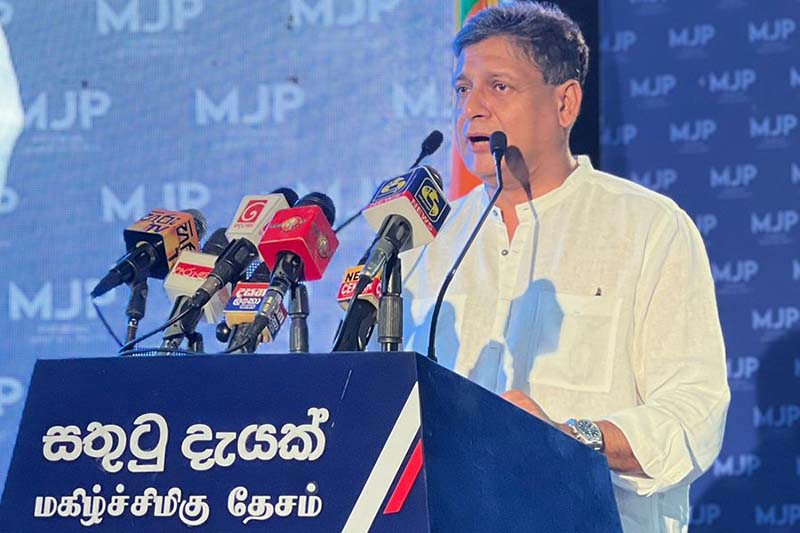
The other candidate in the race, media mogul-turned-presidential aspirant Dilith Jayaweera, is constantly attacking AKD and the JVP politically because the movement of the SLPP bloc to AKD needs to be stopped. Jayaweera, who took the stage on 17 February at the Sugathadasa Indoor Stadium, did not mince his words on AKD. Jayaweera’s event was akin to an Obama or Trump campaign stage. The imagery was brilliant, with a revolving stage. Jayaweera’s target segment is the 2019 SLPP base and the float – the same segment AKD’s ascent is based on.
Jayaweera, in Polonnaruwa, took on AKD again. AKD responded to Jayaweera at a talk show at Wickremesinghe’s elder brother’s TV station – TNL TV. AKD was firm again. Jayaweera is nothing for him to debate in any form. Watching Jayaweera stick to his guns against AKD will be an exciting case. Whilst Wickremesinghe is going easy on AKD to the amusement of his campaign team, the other candidate in the race, Premadasa, just like Jayaweera, is on the offensive against AKD.
However, whenever AKD gets attacked by every other politician, he is on the news. In political campaigning, positive and negative news are equally important. Wickremesinghe’s soft approach to AKD is intriguing. Also, Wickremesinghe’s campaign team was instructed to go soft on SJB politicians as well.
Premadasa’s Achilles heel is Party Chairman Sarath Fonseka. The former war-winning Army Commander swiftly sought legal protection against any dismissal, which prompted Premadasa to sideline him further. The humiliated Sarath Fonseka is a dangerous proposition. He looks like a man in no man’s land now and has nothing to lose. When people have nothing to lose, they do the unthinkable.
Sarath Fonseka is the man to watch next week. He is bruised, battered, and humiliated. Premadasa is campaigning hard and famously declared at a public rally that he is a father now. Hours later, pictures of his daughter and wife emerged in digital media. People can be unforgiving and critics were many, but many more congratulated the new father.
Flight plight
If politics is terrible, the story of the national carrier continues to attract bad press.
The plight of SriLankan Airlines, once a jewel in the national crown, serves as a poignant metaphor for the country’s broader challenges. The airline’s struggles with flight cancellations, poor customer service, and technical issues have not only tarnished its reputation but have also raised questions about accountability and the stewardship of national assets.
The public’s disillusionment with this once-cherished institution reflects a deeper malaise, a yearning for prioritising the nation’s pride and potential over short-term gains and personal agendas.
In 2022-’23, the airline made an operating profit of Rs. 40,743 million, but ended facing a net loss of Rs. 73,621 million. The shareholder funds are negative at Rs. 509,174 million. It is now up for sale.
When the Minister of Aviation publicly says that there will be flight cancellations and service issues, asks the company to be truthful to consumers, and says that consumers can choose any other competitor airline to travel, this sums up the chaos in motion.
Politics and emotions
The recent encounter between Tourism Minister Harin Fernando and journalists on a popular talk show on Hiru TV epitomises the fragile relationship between the media and public figures. The exchange, marked by loss of composure and mutual accusations, underscores the media’s vital role in maintaining the sanctity of public discourse.
This incident highlights the human aspect of political figures, with journalists reminding us that beneath the veneer of authority lies vulnerability and the capacity for error. It calls for a more respectful and responsible engagement between the media and those emphasising on the collective duty to uphold the dignity of public dialogue.
Tourism Minister Fernando feels that the media targeted him. Finger-wagging and raised tones from both sides made it difficult to watch. Anyone can be triggered at any time, but Fernando should avoid getting into brawls frequently, because he is a public leader and under the microscope. Silence is one of the most powerful tools. Had Fernando, or the journalist, Samarawickrama, been silent during the altercation, the silent person would have won the debate. Fernando’s “Sri Lanka is part of India” story is not news anymore. Any story in Sri Lanka lasts only two days now. People have bigger problems of their own.
People are becoming overly emotional now. Political arguments are back in digital media. Especially on X (formerly Twitter), people are fighting with unknown people. Some of the X accounts, even without a face and a real name, can provoke the emotions of others. If someone’s perspective stirs your feelings, maybe it’s time to take a step back and ask why.
Some are defending politicians they have never met. Assumptions and rumours are ruling the public discourse. Defeating another’s point of view has become the norm. Why not convert them to your point of view? Or what’s wrong with the other person having a different point of view? I have often seen even the best of friends and family members hurt each other’s feelings arguing over two things: religion and politics. If religion divides you, it’s inevitable that politics will divide you further.
I have said this before: the next Presidential Election will be a brutal campaign. The early signs are here. Fake news and fear campaigns will rule the campaign. Fear campaigns will get amplified when others use fear to counter fear. If fear is the mantra, who is providing hope for the people and the country?
Saliya Weerakoon

*This article was first published on the Sunday Morning.

